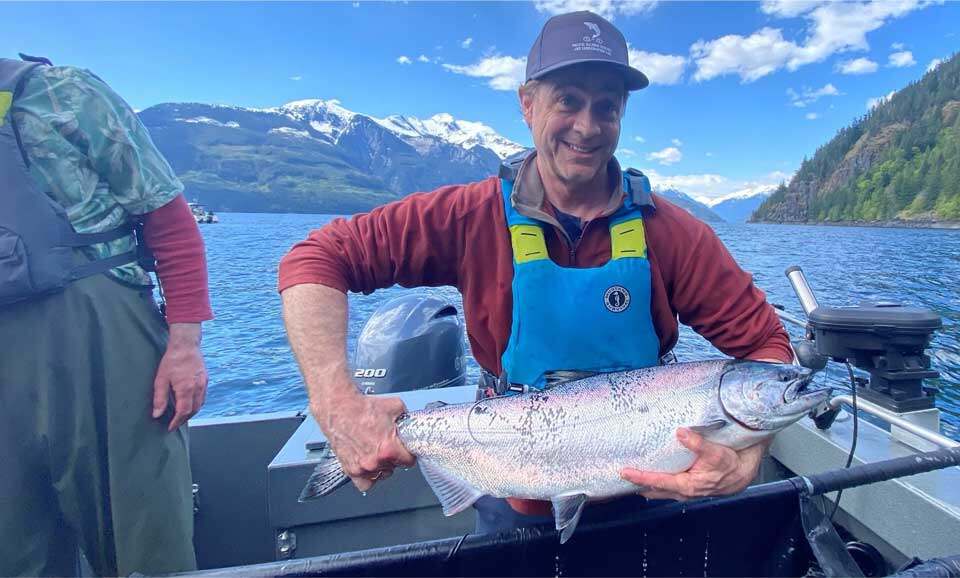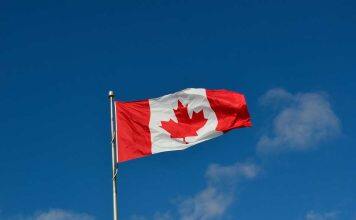A six-year UBC study reveals salmon injuries from hooks, nets and handling as key factors behind post-release mortality.


Using smaller hooks, avoiding landing nets, and de-hooking and measuring fish in water are three of 15 solutions UBC researchers recommend to help released salmon thrive.
As salmon stocks decline and catch limits tighten, capture-and-release fishing has become more common—but often, released fish don’t survive. A six-year UBC faculty of forestry study reveals injuries from hooks, nets and handling as key factors behind post-release mortality.
“Our study showed Chinook and coho salmon caught and released in the Salish Sea can struggle to survive due to the injuries obtained during capture and landing,” said Dr. Scott Hinch, lead author and head of UBC’s Pacific Salmon Ecology and Conservation Lab. “We’re recommending 15 simple changes to fishing and releasing salmon for anglers, fisheries and government to consider.”
The researchers tagged and tracked more than 1,500 salmon and analyzed an additional 500 in the laboratory. Their report, presented today at the Sports Fishing Institute of B.C. conference in Vancouver, showed that injuries to fins, scales and eyes reduced survival by up to 20 per cent within 10 days of release, compared to fish that were in good physical condition when released. Eye injuries, caused by larger hooks, further cut Chinook survival by 20 per cent after 40 days.
The study also found that smaller salmon were significantly less likely to survive than larger ones, and coho were less resilient than Chinook. Warmer ocean temperatures above 18°C further heightened mortality risks, underscoring the role of climate change in amplifying these challenges.
To view the full report, visit https://psf.ca/blog/catch-and-release/ or https://www.sportfishing.bc.ca/release-them-right (with videos)
“This research shows how simple changes in fishing practices and gear can make a big difference. Adopting these best practices could help improve the long-term health of salmon populations and sustain recreational fishing as stocks decline. We know anglers also want to keep fish alive, and we hope these recommendations help achieve that goal,” said Dr. Hinch.
The study, conducted in partnership with the Sports Fishing Institute of B.C., the Pacific Salmon Foundation, and Canada’s Ocean Tracking Network, was funded by the British Columbia Salmon Restoration and Innovation Fund.








































